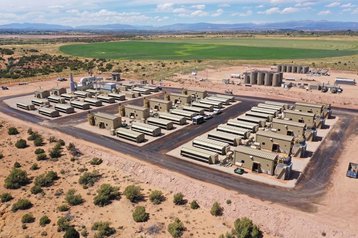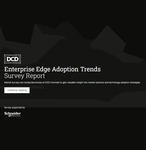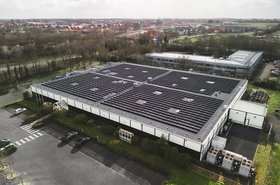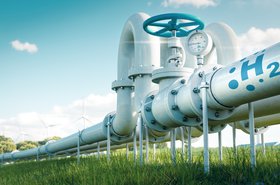Crusoe Energy is to deploy data center modules at oil wells in Utah and run the facilities off the excess gas.
Crusoe Energy Systems this week announced today a new deal with XCL Resources, to deploy Crusoe’s Digital Flare Mitigation (DFM) technology to XCL sites in Utah’s Uinta Basin.
Oil companies currently burn ("flare off") large amounts of natural gas at oil wells, because it is uneconomic to exploit it. Crusoe places gas turbines at oil wells, and uses the otherwise wasted gas to power containerized computers performing tasks that are believed to be mostly cryptomining, but also include AI and supercomputing.
Under the new deal, Crusoe said it will add 'six million standard cubic feet per day' of DFM capacity. It’s unclear how many modules this equates to - an image in the press release shows around 36 modules - but the company claims it will reduce CO2e emissions by up to 273,000 tons per year.
“We’re excited to extend Crusoe’s positive environmental impact into the Uinta Basin, and to significantly expand our capacity to reduce methane emissions,” said Cully Cavness, Crusoe co-founder and president. “This collaboration with XCL will help to advance Crusoe’s mission to align the future of computing with the future of the climate.”
“XCL is focused on providing abundant, low-cost, and reliable energy that is developed responsibly within our communities,” said Blake McKenna, XCL’s president and COO. “This partnership with Crusoe fits that strategy by implementing cutting-edge technology that reduces emissions and supports XCL’s continued growth.”
Crusoe currently has more than 120 modular DFM data centers deployed throughout the United States.
The company claims the process benefits the environment because otherwise wasted energy is used, and the gas is burnt more efficiently, releasing less unburnt methane. Methane is a potent greenhouse gas (GHG); burning it converts it into CO2, a much less potent but more long-lasting GHG. Crusoe's figures claim that burning methane to CO2 results in a 69 percent decrease in short-term CO2-equivalent emissions compared to flaring.
The process has also been labeled "greenwash" as it makes fossil fuel exploitation look a little greener, without doing anything to reduce overall fossil fuel use.
XCL Resources, LLC is an independent oil and natural gas company focused on the Uinta Basin. Investors include EnCap Investments and Rice Investment Group.







